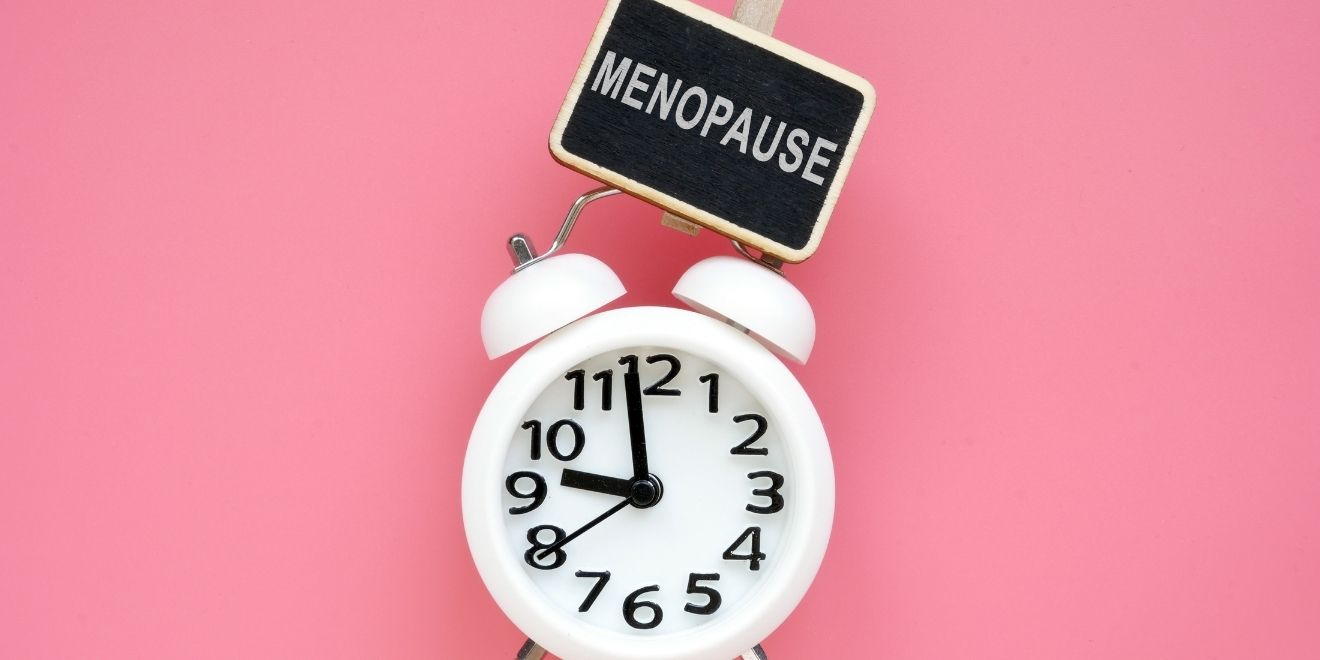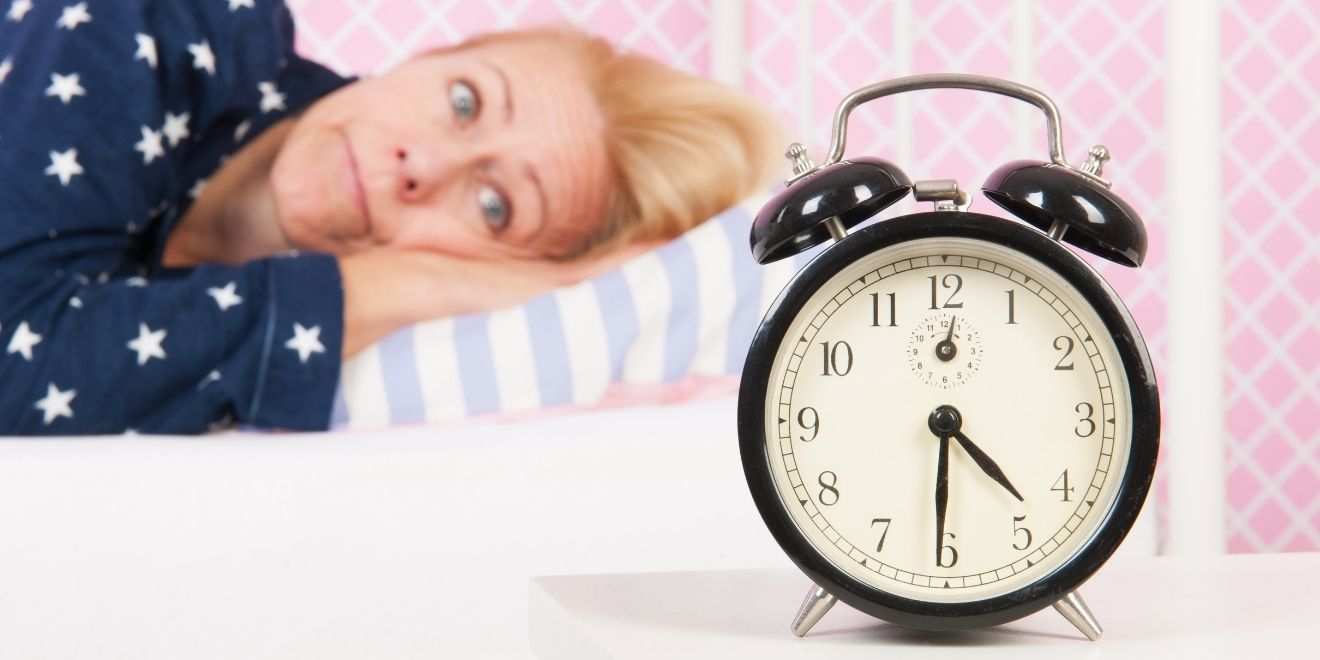The Connections Between Menopause and Mental Health

It is common for women to experience the symptoms of menopause. They might seem unrelated, but they manifest themselves in forms that affect your mental health.
Depression and anxiety are the most common of all, along with insomnia, flushes, night sweats, tiredness, and many more. At first, you may not know how to handle them, especially because the changes happen at a hormonal level, so something you have no control over.
Irritability is one of the most common symptoms of menopause you need to learn to handle. The intensity of these symptoms indeed depends on many things, but one way or another, they will come to the surface during menopause.

Many studies link menopause to various mental health issues. Not in a way that menopause is causing them, but it simply makes some emotions and feelings more intense. These changes are also due to decreases in hormones such as estrogen.
This phase of a woman's life comes not only with more negative emotions and feelings but also with thoughts and worries. Sometimes, you may feel burdened by the huge worries you often think about.
Among the most common things aging women worry about are the health of the partner, aging parents, career changes, grown children leaving home, and many more.
When you reach menopause, you often think about your role in society, a society that mainly values youngsters over elders. Menopause brings you closer to the idea of death, and this can be the moment where many women reevaluate their life expectations.
There are many symptoms, emotions, and feelings you can feel when you reach menopause. And it seems that the stories you have grown up with make you feel bad about it. They make you feel worse because, besides those hormonal changes, you have also created a story inside your head. That menopause is bad and it makes you a different person. We all remember childhood stories with those old ladies who have reached menopause and are hated by all the children.
Before you start entering this never-ending cycle of thoughts, ask yourself how do you feel? Label your emotions, try to understand your feelings. It is common for women who reach menopause to have symptoms more and more visible.

You may think that your partner is trying to make you angry. You may feel that you are calm in one moment, and raging in the next one. Rage and anger are just a phase of the menopause period. The next one would be the one in which you worry about your friends’ opinions about you because you have realized that you were simply too angry. And so, anxiety and depression can easily appear.
There is a strong connection between menopause and mental health and being aware of it is essential. If you are aware of what happens during menopause, how you will feel, or what you will think, it will be easier to learn how to manage these tough moments. The changes that happen inside your body are not in your control, but how you react and handle them might be.
One common symptom of menopause is mood swings. One minute you feel good, and the next one you find yourself raging about something. This happens to the majority of women who go through menopause, and it can also be the thing that might trigger your depression.

Even though there still have to be made studies and investigation regarding the connection between depression and menopause, some studies have already made some discoveries.
Studies suggest that women who have had severe PMS (premenstrual syndrome) or experienced postpartum depression, are more prone to experiencing severe menopause symptoms. This means that depressive symptoms might be more severe during menopause.
Moreover, it seems that women who have a history of clinical depression will, most likely, experience a recurrence of depression during menopause. Hormonal changes are happening inside your body and many of these are linked to mild depressive symptoms.
At the same time, there might be other menopause symptoms that could trigger your depression.
For example, many women experience insomnia as a symptom of menopause. This means that you do not get the rest you need, so it is easy to become irritable and angry. Depression can be triggered by a lack of sleep, so you need to pay attention to your mood and mental health.
If the connection between depression and menopause is somehow clear, the one between menopause and anxiety is quite blurry. Some anxiety symptoms can be mistaken for those of menopause.

For example, it is common during menopause to experience hot flashes. Many women say that they also experience panic attacks. A panic attack comes with symptoms such as shortness of breath, trembling, sweating, heart palpitations. But this is what hot flashes come with too, so the link between menopause and anxiety is still unclear.
There is one way to tell the difference between hot flashes and a panic attack. The latter one comes with shortness of breath too, when the first one does not.
At the same time, women in their menopause often worry about their health and one of their aging parents, partner, and children. They worry and ruminate about their role in society, about their career and life changes, about children leaving home. Thinking about all these continuously will likely trigger anxiety.
If you have a pre-existing mental health condition, such as depression, bipolar disorder, schizophrenia, menopause will likely make the symptoms more intense.
To be able to have better control over your emotions is to become aware of them. Having a mood journal could help you learn to label your emotions and identify them. Note down what triggers your emotions and also your habits.

It is important to pay attention to your eating and sleeping habits as well, as they may be the cause that triggers some of your emotions. Irritability and insomnia are common symptoms of menopause and they can affect the quality of your life.
Because in some cases the symptoms of menopause can be uncontrollable, they can seriously affect the quality of your relationships and life. If you feel that they are really intrusive and you feel overwhelmed, seek professional help. Starting therapy will help you learn coping mechanisms, but also more about yourself and what you go through.
The symptoms of menopause cannot be avoided, but you can make some changes to keep them under control. For example, you can start exercising. Any form of sports will help you feel better because it will trigger the release of endorphins.
Moreover, your sleep quality will surely be improved, something you need during this tough period. On top of this, you can also learn more about stress, how to monitor your stress levels, and what to do to alleviate the symptoms. Spending time in nature or forest bathing helps you connect with the environment that surrounds you, but also helps you relax and be calmer.

When you go through this difficult time, you may often think that this is the way you will be forever.
In these difficult moments, it is important to remember that this won’t last and that it is temporary. Reach out to others and surround yourself with the people that love and understand you. Support is important during these moments and for sure your dear ones will understand what you are going through.
Jessica Chapman, a writing editor from Chicago. She writes college-paper.org reviews and essays reviews. She is into sport and politics and enjoys traveling.
Depression and anxiety are the most common of all, along with insomnia, flushes, night sweats, tiredness, and many more. At first, you may not know how to handle them, especially because the changes happen at a hormonal level, so something you have no control over.
However, the effects of menopause and perimenopause are quite visible and they might affect the quality of your life and relationships.
Irritability is one of the most common symptoms of menopause you need to learn to handle. The intensity of these symptoms indeed depends on many things, but one way or another, they will come to the surface during menopause.

Many studies link menopause to various mental health issues. Not in a way that menopause is causing them, but it simply makes some emotions and feelings more intense. These changes are also due to decreases in hormones such as estrogen.
This phase of a woman's life comes not only with more negative emotions and feelings but also with thoughts and worries. Sometimes, you may feel burdened by the huge worries you often think about.
Among the most common things aging women worry about are the health of the partner, aging parents, career changes, grown children leaving home, and many more.
When you reach menopause, you often think about your role in society, a society that mainly values youngsters over elders. Menopause brings you closer to the idea of death, and this can be the moment where many women reevaluate their life expectations.
How Do You Feel?
There are many symptoms, emotions, and feelings you can feel when you reach menopause. And it seems that the stories you have grown up with make you feel bad about it. They make you feel worse because, besides those hormonal changes, you have also created a story inside your head. That menopause is bad and it makes you a different person. We all remember childhood stories with those old ladies who have reached menopause and are hated by all the children.
Before you start entering this never-ending cycle of thoughts, ask yourself how do you feel? Label your emotions, try to understand your feelings. It is common for women who reach menopause to have symptoms more and more visible.

You may think that your partner is trying to make you angry. You may feel that you are calm in one moment, and raging in the next one. Rage and anger are just a phase of the menopause period. The next one would be the one in which you worry about your friends’ opinions about you because you have realized that you were simply too angry. And so, anxiety and depression can easily appear.
There is a strong connection between menopause and mental health and being aware of it is essential. If you are aware of what happens during menopause, how you will feel, or what you will think, it will be easier to learn how to manage these tough moments. The changes that happen inside your body are not in your control, but how you react and handle them might be.
Menopause and Depression
One common symptom of menopause is mood swings. One minute you feel good, and the next one you find yourself raging about something. This happens to the majority of women who go through menopause, and it can also be the thing that might trigger your depression.

Even though there still have to be made studies and investigation regarding the connection between depression and menopause, some studies have already made some discoveries.
Studies suggest that women who have had severe PMS (premenstrual syndrome) or experienced postpartum depression, are more prone to experiencing severe menopause symptoms. This means that depressive symptoms might be more severe during menopause.
Moreover, it seems that women who have a history of clinical depression will, most likely, experience a recurrence of depression during menopause. Hormonal changes are happening inside your body and many of these are linked to mild depressive symptoms.
At the same time, there might be other menopause symptoms that could trigger your depression.
For example, many women experience insomnia as a symptom of menopause. This means that you do not get the rest you need, so it is easy to become irritable and angry. Depression can be triggered by a lack of sleep, so you need to pay attention to your mood and mental health.
Menopause and Anxiety
If the connection between depression and menopause is somehow clear, the one between menopause and anxiety is quite blurry. Some anxiety symptoms can be mistaken for those of menopause.

For example, it is common during menopause to experience hot flashes. Many women say that they also experience panic attacks. A panic attack comes with symptoms such as shortness of breath, trembling, sweating, heart palpitations. But this is what hot flashes come with too, so the link between menopause and anxiety is still unclear.
There is one way to tell the difference between hot flashes and a panic attack. The latter one comes with shortness of breath too, when the first one does not.
At the same time, women in their menopause often worry about their health and one of their aging parents, partner, and children. They worry and ruminate about their role in society, about their career and life changes, about children leaving home. Thinking about all these continuously will likely trigger anxiety.
So, What Can You Do to Protect Your Mental Health During Menopause?
If you have a pre-existing mental health condition, such as depression, bipolar disorder, schizophrenia, menopause will likely make the symptoms more intense.
Have a Mood Journal
To be able to have better control over your emotions is to become aware of them. Having a mood journal could help you learn to label your emotions and identify them. Note down what triggers your emotions and also your habits.

It is important to pay attention to your eating and sleeping habits as well, as they may be the cause that triggers some of your emotions. Irritability and insomnia are common symptoms of menopause and they can affect the quality of your life.
Seek Professional Help
Because in some cases the symptoms of menopause can be uncontrollable, they can seriously affect the quality of your relationships and life. If you feel that they are really intrusive and you feel overwhelmed, seek professional help. Starting therapy will help you learn coping mechanisms, but also more about yourself and what you go through.
Change Your Lifestyle
The symptoms of menopause cannot be avoided, but you can make some changes to keep them under control. For example, you can start exercising. Any form of sports will help you feel better because it will trigger the release of endorphins.
Moreover, your sleep quality will surely be improved, something you need during this tough period. On top of this, you can also learn more about stress, how to monitor your stress levels, and what to do to alleviate the symptoms. Spending time in nature or forest bathing helps you connect with the environment that surrounds you, but also helps you relax and be calmer.

Remember that this Won’t Last
When you go through this difficult time, you may often think that this is the way you will be forever.
But this is just a phase you will surely overcome with success. It may be a hard battle, but one in which you will get to know yourself and your body better.
In these difficult moments, it is important to remember that this won’t last and that it is temporary. Reach out to others and surround yourself with the people that love and understand you. Support is important during these moments and for sure your dear ones will understand what you are going through.
Author Bio:
Jessica Chapman, a writing editor from Chicago. She writes college-paper.org reviews and essays reviews. She is into sport and politics and enjoys traveling.




































































































